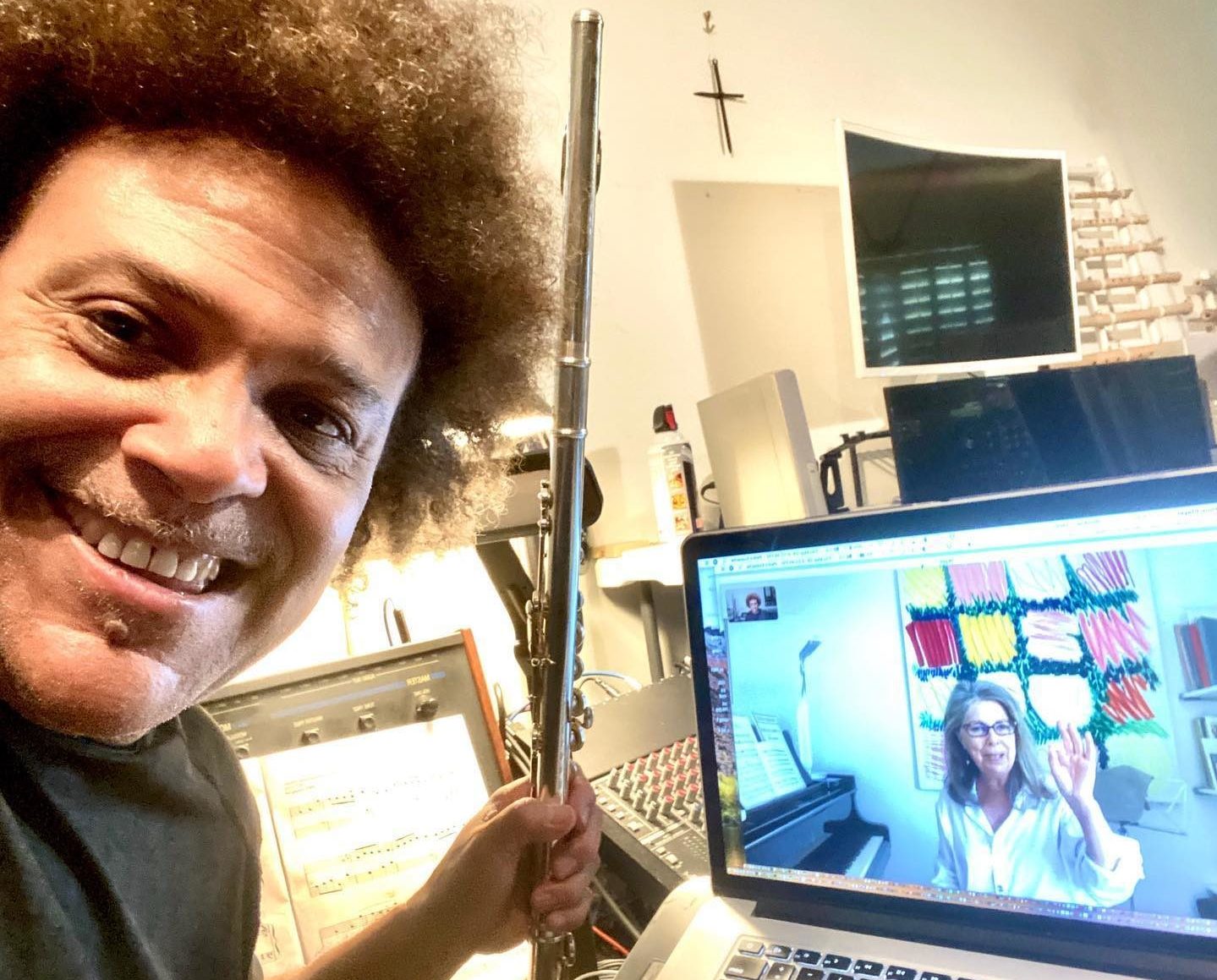Musical Phenomenology
Listen in the space
Musical Phenomenology (MP) was developed by Sergiu Celibidache, one of the great musicians of the 20th Century. With the study of musical phenomenology, we become aware of the hidden laws of sound, and how it engages the human consciousness. In so doing, we open a new path to discover and experience classical music.
Listen in the space
Find your sound
As surprising as this might be, many musicians have not yet found their authentic sound. What do I mean by that? Your authentic sound is the one that you produce, free of tensions and, most of all, free of “wanting.” It is unique and you will know it when you hear it. It is the beginning of your musical journey and it is a moment that fils me with joy, each time it happens.
Online classes
COVID-19 has been a great trigger for resourcefulness. I have found that teaching online is fruitful, and am happy to offer online MP classes. The experience can be conveyed even with the limitations of the electronic media. The practice of MP starts with our awareness of the sound and how it connects to the next sound in a certain space.
“In order for music to flow through us, our bodies need to be free of tension, our minds need to be free of thought, and our emotions need to be open to the beauty of sound. This freedom is the gateway to transcendence.”
Christyna Kaczynski-Kozel
Christyna Kaczynski-Kozel, Pianist & Teacher of Musical Phenomenology
I was born in a family of musicians, my mother was an opera singer, and my father was a concert pianist. I started playing piano at the age of 5, and continued to various conservatories in Quebec, where I was born. Living in Italy and Spain gave me the opportunity to learn these beautiful languages and to further my musical education.
Musical Phenomenology (MP), a path to your authenticity.
What is Musical Phenomenology?
How can I learn Musical Phenomenology?
For almost all musicians, MP is a new path. Because we were not taught about consciousness in the process of making music, it is new to us. With guidance, patience and dedication, you will learn.
What is the difference to "normal" playing?
Can every musician learn it?
Yes, every musician can learn it. Maestro Celibidache always said, “everybody can hear like I do”. In learning MP, you will develop not only your skills at the instrument but also your musical ear. You will learn to connect your playing with your listening.
What are the challenges?
Because it is different then the conventional teaching, it can be a bit disorienting at the beginning. It can be hard to let go of old ideas, and presumptions. There might be a form of resistance at the beginning. You are renewing your connection to your instrument, your body, and your whole self, so it needs some time.
What kind of course should I book?
The first step is to have a consulting class, where I can evaluate where you are at and what you need.

Sergiu Celibidache
Testimonial
Pedro Eustache


Venezuelan solo flautist, reed player, woodwind player, wind synthesist, researcher, composer, lecturer, and instrument maker. Pedro has seven years of symphonic experience and a collection of around 600 instruments from all over the world, many of which he has designed, built or modified himself.
“Sound is not music, sound can become music.”
Sergiu Celibidache
Get In Touch
info@musical-phenomenology.com
